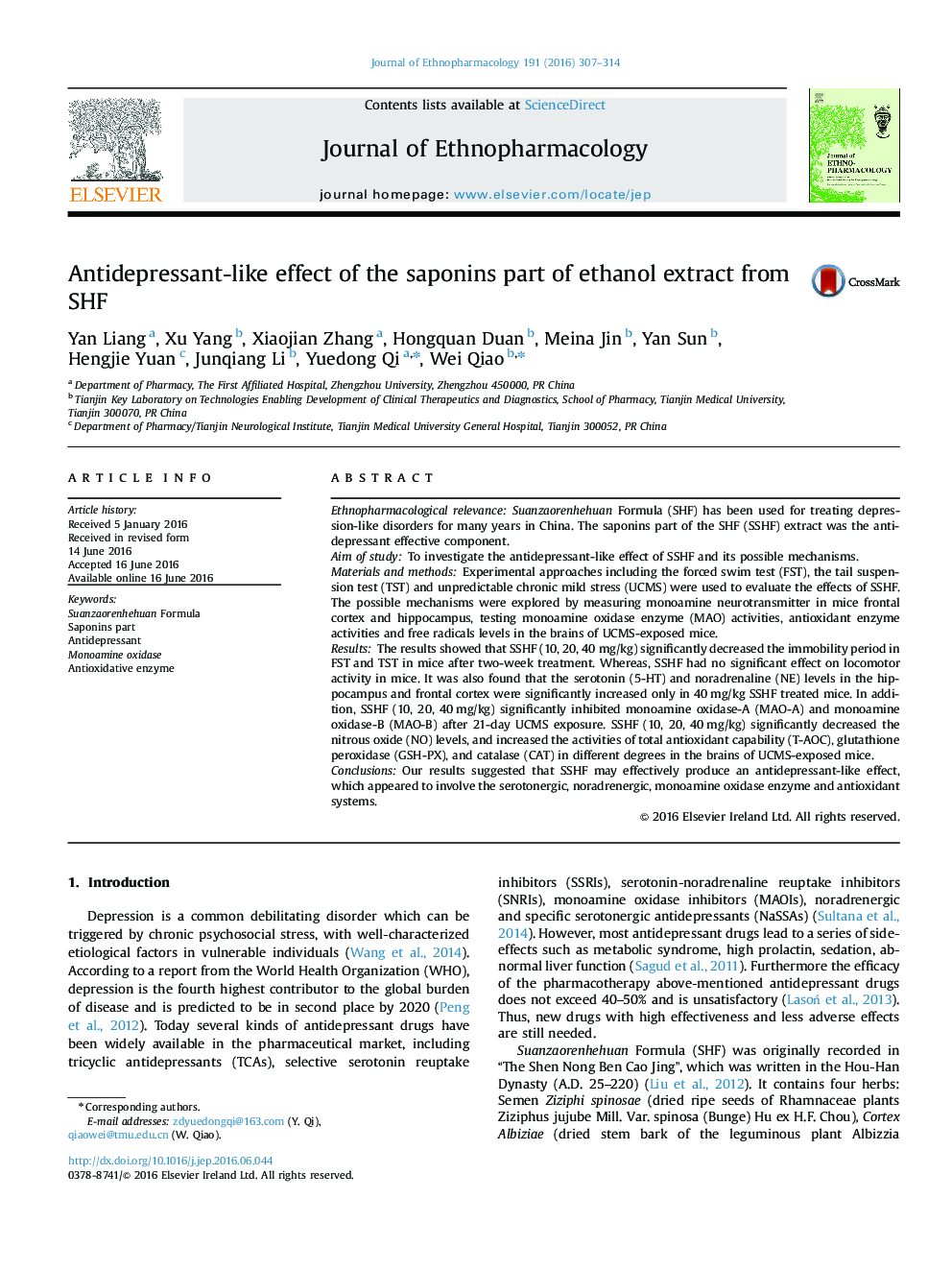| Article ID | Journal | Published Year | Pages | File Type |
|---|---|---|---|---|
| 2544593 | Journal of Ethnopharmacology | 2016 | 8 Pages |
Ethnopharmacological relevanceSuanzaorenhehuan Formula (SHF) has been used for treating depression-like disorders for many years in China. The saponins part of the SHF (SSHF) extract was the antidepressant effective component.Aim of studyTo investigate the antidepressant-like effect of SSHF and its possible mechanisms.Materials and methodsExperimental approaches including the forced swim test (FST), the tail suspension test (TST) and unpredictable chronic mild stress (UCMS) were used to evaluate the effects of SSHF. The possible mechanisms were explored by measuring monoamine neurotransmitter in mice frontal cortex and hippocampus, testing monoamine oxidase enzyme (MAO) activities, antioxidant enzyme activities and free radicals levels in the brains of UCMS-exposed mice.ResultsThe results showed that SSHF (10, 20, 40 mg/kg) significantly decreased the immobility period in FST and TST in mice after two-week treatment. Whereas, SSHF had no significant effect on locomotor activity in mice. It was also found that the serotonin (5-HT) and noradrenaline (NE) levels in the hippocampus and frontal cortex were significantly increased only in 40 mg/kg SSHF treated mice. In addition, SSHF (10, 20, 40 mg/kg) significantly inhibited monoamine oxidase-A (MAO-A) and monoamine oxidase-B (MAO-B) after 21-day UCMS exposure. SSHF (10, 20, 40 mg/kg) significantly decreased the nitrous oxide (NO) levels, and increased the activities of total antioxidant capability (T-AOC), glutathione peroxidase (GSH-PX), and catalase (CAT) in different degrees in the brains of UCMS-exposed mice.ConclusionsOur results suggested that SSHF may effectively produce an antidepressant-like effect, which appeared to involve the serotonergic, noradrenergic, monoamine oxidase enzyme and antioxidant systems.
Graphical abstractFigure optionsDownload full-size imageDownload high-quality image (181 K)Download as PowerPoint slide
